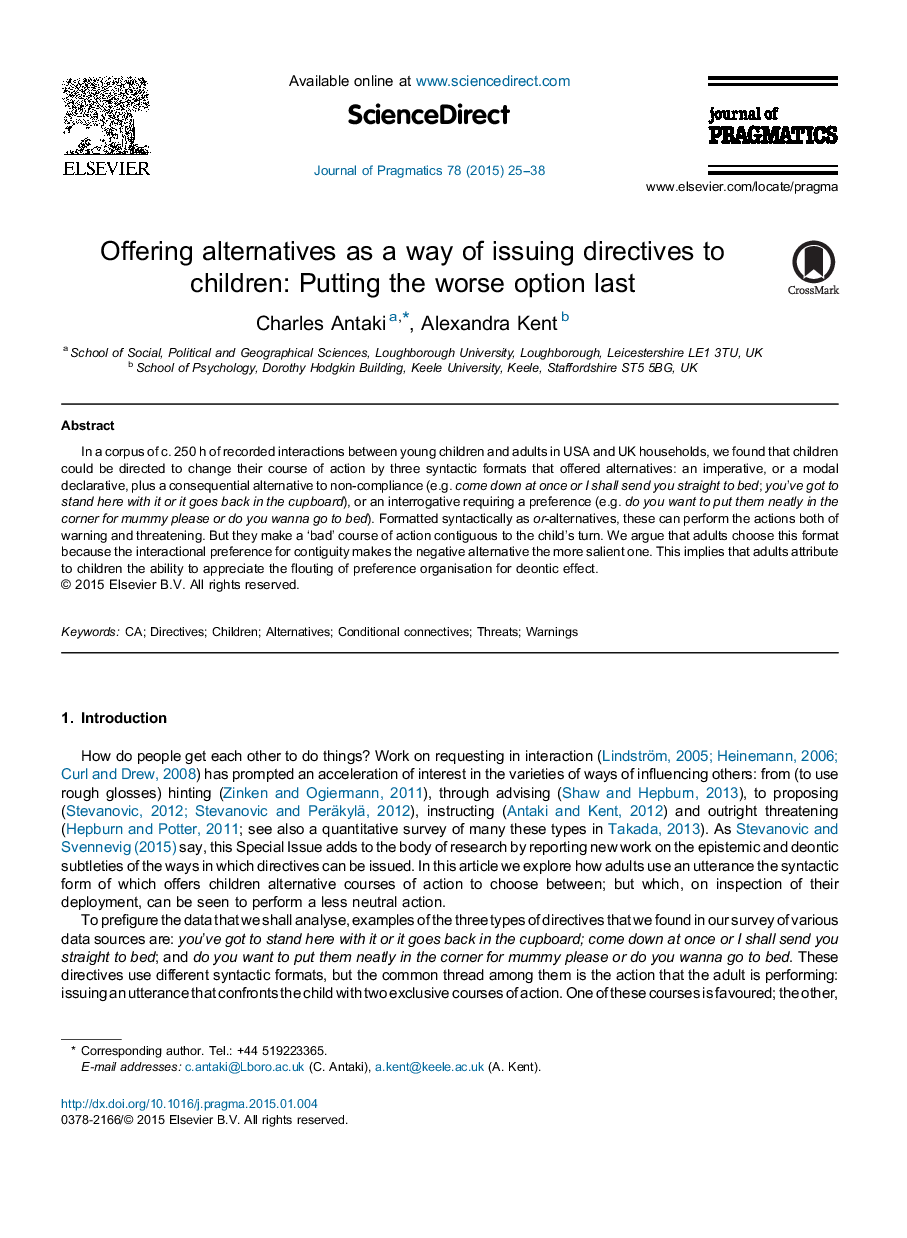| Article ID | Journal | Published Year | Pages | File Type |
|---|---|---|---|---|
| 932628 | Journal of Pragmatics | 2015 | 14 Pages |
In a corpus of c. 250 h of recorded interactions between young children and adults in USA and UK households, we found that children could be directed to change their course of action by three syntactic formats that offered alternatives: an imperative, or a modal declarative, plus a consequential alternative to non-compliance (e.g. come down at once or I shall send you straight to bed; you’ve got to stand here with it or it goes back in the cupboard), or an interrogative requiring a preference (e.g. do you want to put them neatly in the corner for mummy please or do you wanna go to bed). Formatted syntactically as or-alternatives, these can perform the actions both of warning and threatening. But they make a ‘bad’ course of action contiguous to the child's turn. We argue that adults choose this format because the interactional preference for contiguity makes the negative alternative the more salient one. This implies that adults attribute to children the ability to appreciate the flouting of preference organisation for deontic effect.
